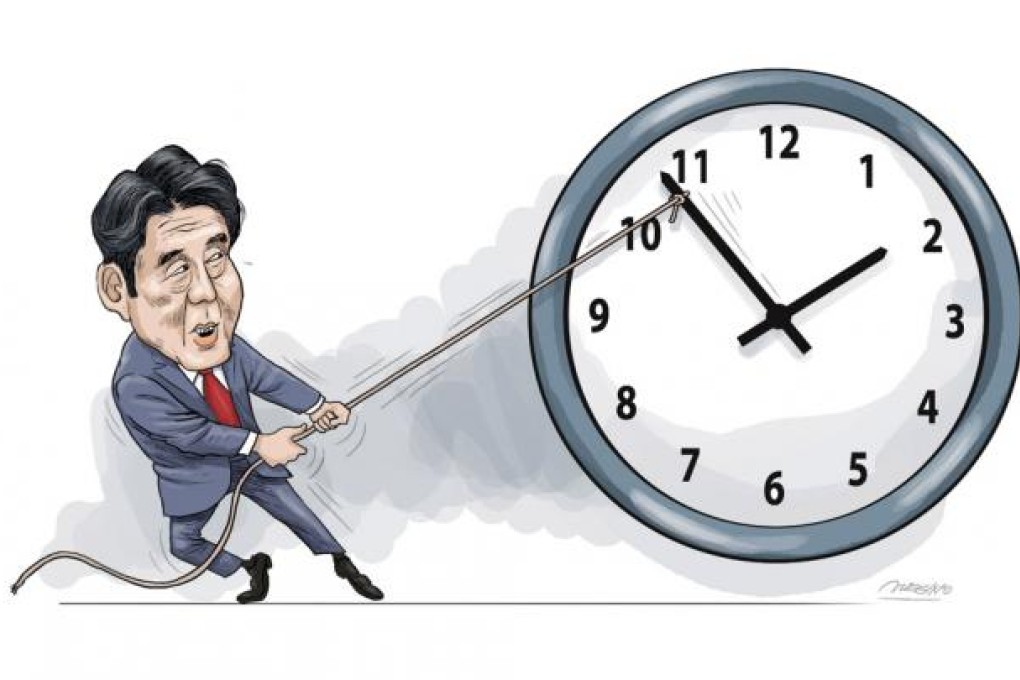Abe's wrong-headed move to revise the constitution
Kevin Rafferty says Shinzo Abe’s single-minded attempt to force through constitutional changes, to which the people are indifferent, raises fears that Japan may try to relive its nationalist past

Shinzo Abe, Japan's new prime minister, is going full speed ahead with his plan to rewrite the country's pacific and war- renouncing constitution to his own nationalist image.
It is a reckless plan that is not only anti-democratic but is likely to set back Japan's diplomatic and political relations while doing nothing for its main tasks, which are urgent reforms to a stagnant economy and a rapidly ageing society.
Abe has devised a fast-track road map to simplify his task. He will revise Article 96, which demands that constitutional changes must be approved by two-thirds of both houses of parliament and then put to a popular referendum. He wants to change this to a simple majority in parliament.
Debate before the referendum will be constrained by a law passed when Abe was previously in office. The referendum can be held as early as 60 days after the Diet decision and must be held within 180 days. Civil servants and educators are prohibited from engaging in activities that might affect the outcome of the referendum and, in the two weeks before, there will be further limits on public discussions. As it is, a referendum needs only a simple majority; easy to get through an apathetic public.
Abe claims Japan needs to grow up and throw off the yoke of a constitution drafted by the US occupiers after Japan's defeat in the second world war. In particular, Article 9, which famously renounces war and prohibits military forces, inhibits Japan's needs for collective self-defence.
Before Abe and his Liberal Democratic Party romped back into power last year, with an overwhelming majority, the party published its own draft constitution.
This has a string of changes that would damage or destroy the fine promises of the current constitution, which not only renounced war, but gave women equal rights and enshrined "respect for fundamental human rights", including equality, freedom of assembly, speech, thought, and the right to sue the state.